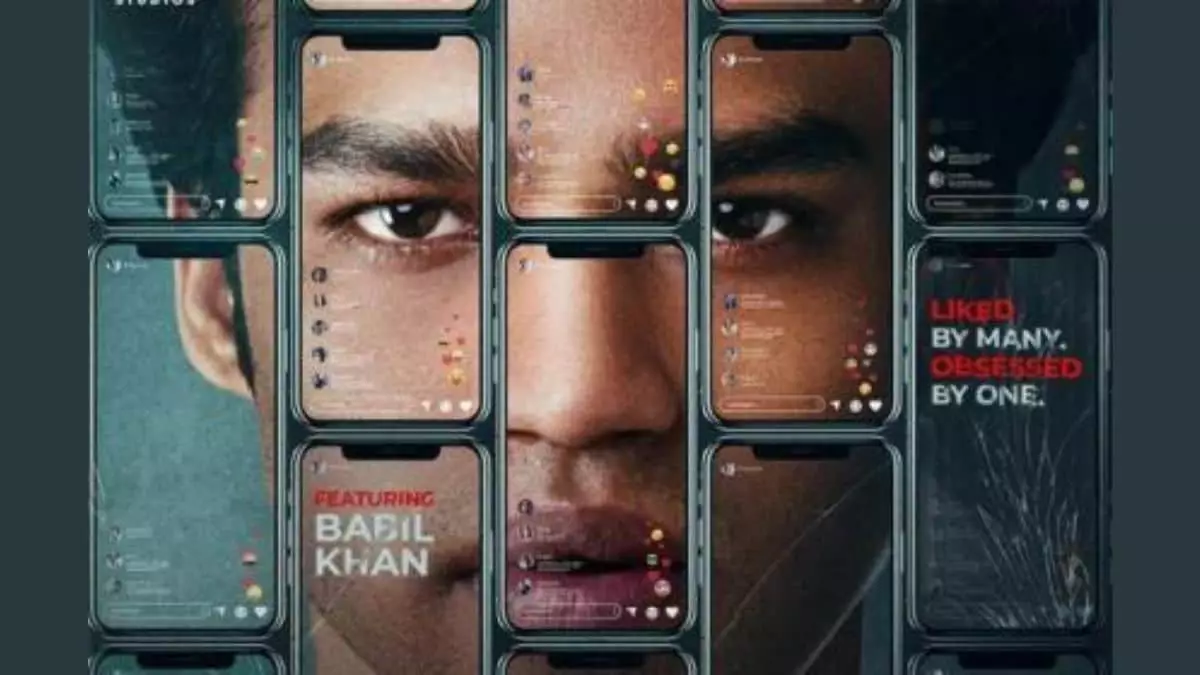Babil Khan, the son of the beloved Irfan Khan, is making waves with his upcoming film, *Logout*, a thriller that tackles an issue too many young people face today: the sinister grip of digital dependency. Set to stream on Zee5 on April 18, 2025, this Hindi-language social drama stands as a striking commentary on the psychological ramifications of our incessant need to stay connected. With Babil playing Pratyush, a character whose obsessive pursuit of social media fame spirals out of control, we are invited to examine our own relationship with screens, making *Logout* not just a film, but a necessary cinematic experience for millennials and Gen Z audiences.
A Bold Exploration of Connection and Isolation
Too often, art is relegated to mere entertainment, but *Logout* seeks to punch above its weight. Directed by Amit Golani, the film offers a raw portrayal of modern life, peeling back the layers of our reliance on technology. In an age where likes and followers can dictate self-worth, *Logout* transforms this social media obsession into a haunting narrative that resonates deeply with its viewers. By showcasing Pratyush’s descent into digital madness, we are compelled to confront the truth: that the digital era, while connecting us superficially, often isolates us more profoundly than we care to admit.
Rasika Dugal shines as Pratyush’s therapist, serving as a voice of reason whose own struggles mirror those of her patients. Her character embodies the complexities of human emotion, presenting a compassionate yet conflicted figure. The duality of her role underlines a critical theme within the film—everyone is struggling in this digital landscape, be it the follower or the followed. The film does not merely cast a spotlight on individual failings but rather critiques a larger system that predetermines the struggle for validation in a hyper-connected world.
Beyond Entertainment: A Call to Action
*Logout* is not just entertainment; it is a clarion call urging us to reevaluate our values. The film’s plot unfolds against a backdrop of grave societal issues: cyberbullying, gaming addiction, and the pervasive sense of burnout that comes with constant connectivity. The movie’s trailer, which reveals Pratyush’s fixation on hitting ten million followers, encapsulates a dilemma that has become all too common. One wonders if this unrelenting chase for digital affirmation is worth the toll it takes on mental health and personal relationships.
While many films have attempted to address the implications of digital life, *Logout* seems to better navigate the murky waters of modern existence. It asks bold questions about the true cost of our digitally intertwined lives, pushing us to finally confront the demons we often ignore. One can’t help but feel that this narrative serves as a modern-day cautionary tale, a reminder that the more “connected” we become, the more we risk losing ourselves.
The Youth’s Response: A Cultural Reflection
Buzz surrounding *Logout* has positioned it as a relevant voice for today’s youth, already resonating with a generation often overwhelmed by the monumental pressure to stay relevant. The film has been screened at prestigious film festivals such as the Indian Film Festival of Melbourne and the River to River Florence Indian Film Festival, garnering attention from film enthusiasts and critics alike. Such accolades signal a cultural readiness to engage with difficult subjects, reflecting a collective yearning for authenticity in an era mired in artifice.
In a time when digital platforms reign supreme, the film encapsulates a vital discourse. It engages a generation already increasingly aware and vocal about mental health and digital sobriety. The influence of *Logout* promises to extend far beyond the screen, becoming a part of the ongoing conversation around digital detox and the pressing need for a more mindful approach to technology.
With its captivating narrative and timely themes, *Logout* invites us all to partake in a critical evaluation of our own digital footprints. As Babil Khan, under the weight of his father’s legacy, takes on this complex role, he also steps into a space that demands we reconsider how we define connectivity in our lives—reminding us that sometimes to truly connect, we need to first disconnect.



Leave a Reply